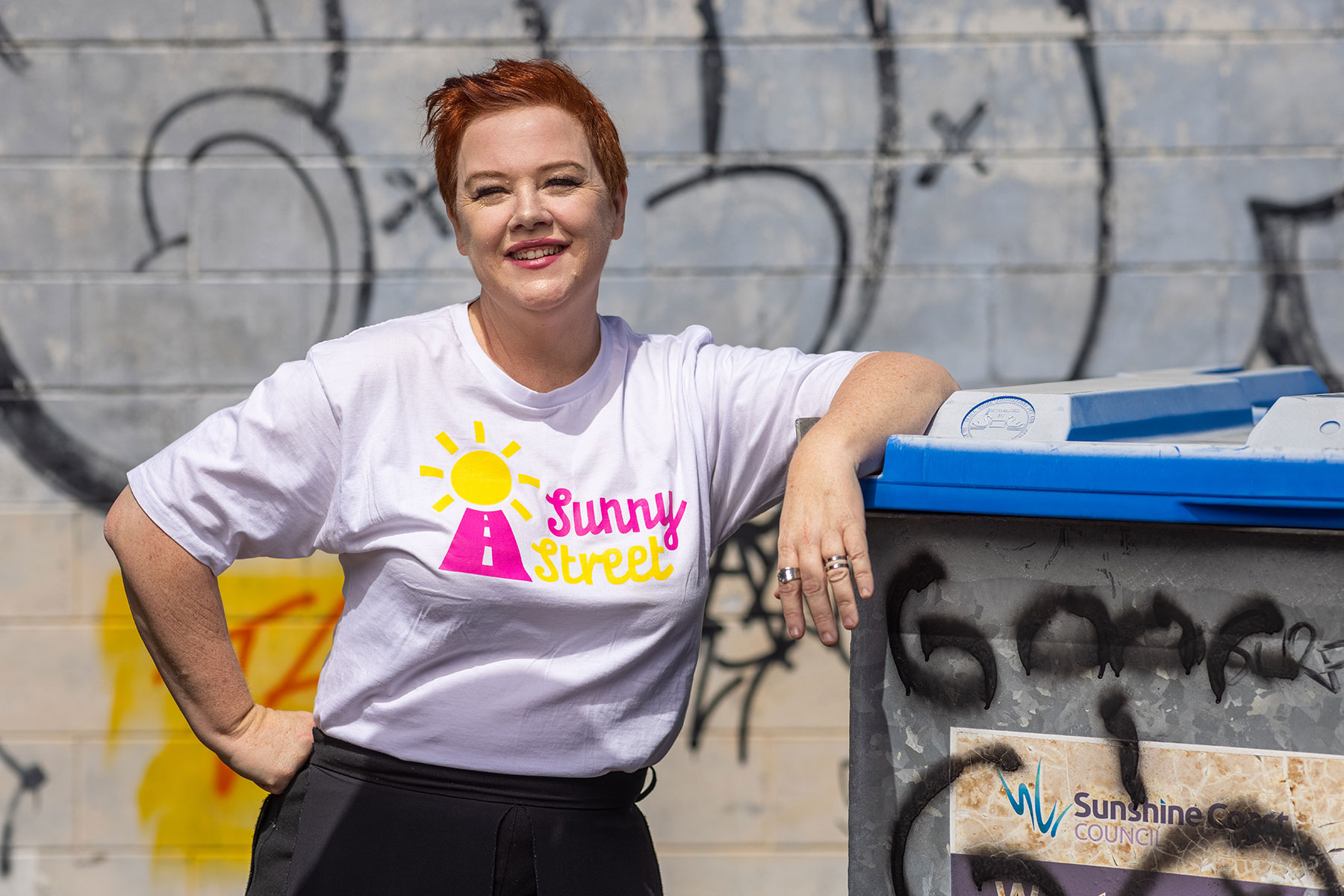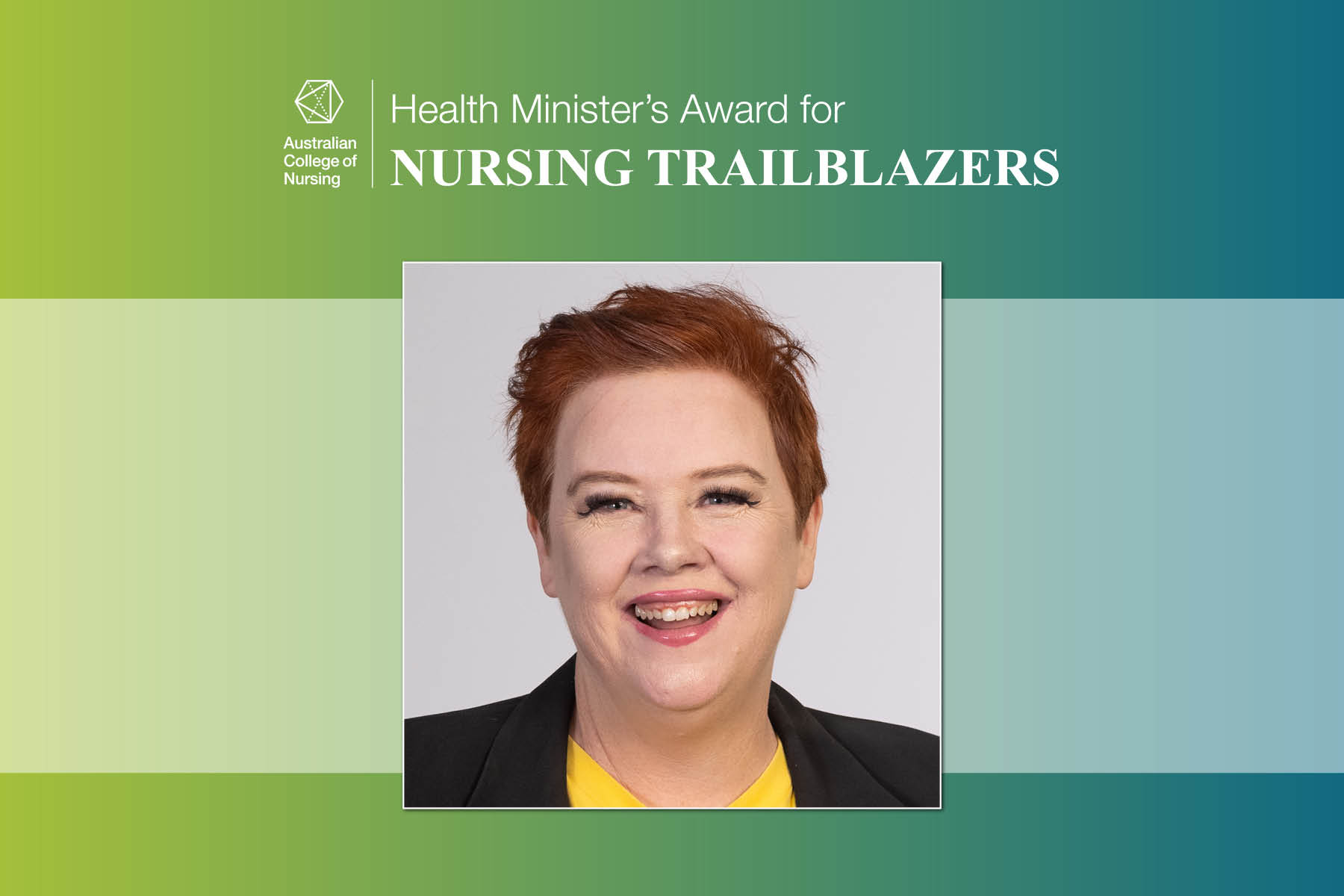To kick off the 2021 Health Minister’s Award for Nursing Trailblazers, we will be featuring each of our Finalists in the lead up to the virtual National Nursing Forum taking place from 26-28 October 2021, where the Winner will be announced.
This week, we are featuring Sonia Martin MACN, who has been named one of the Finalists for providing equitable health care services to people experiencing poverty and homelessness.
What sets Sunny Street apart from other health care services?
Sunny Street is a nurse-led mobile outreach service, meeting people where they are at in their health care journey. It is a conversation-based model of health care that enables our teams to sit with vulnerable community members and understand their current key issues – these could be health focused, housing, relationship or even financial concerns.
It’s also non-hierarchical, so clinicians work within their scope and take on shared responsibilities.

How have you kept it sustainable?
Since 2018, building trust and rapport with people who felt disenfranchised was our priority. We wanted the service to be the ‘bridge that doesn’t break’ for people who had been continuously let down by systems and friends or family.
Sunny Street is sustained via multiple revenue streams. These include Medicare billings, government grants, our corporate flu vaccination program, fundraising opportunities and consumer sponsorship programs with collaborators.
Why does this model work so successfully?
Our clinics are nurse-led. We place nurses right where the community needs them. Nurses are innovators, highly skilled, flexible, compassionate and excellent problem (or puzzle) solvers. I believe that nurses on the frontline, innovating health care for those who are incredibly disenfranchised, are key to changing lives, one person at a time.
What are the biggest barriers your patients face?
There are several — financial limitations, lack of transport, health literacy, the inability to navigate the health care systems and primary or specialist care options and limited social support. All these contribute to emergency presentations or quite simply, no access to health care. I have heard several times that Australian health care is free, but I find that is only true if you can afford it.
What are some personal lessons you have learnt from this journey?
- Don’t expect friends and family to be your top supporters; quite often, the entrepreneurial life is the most difficult for those closest to you. Seek support where you can find it.
- Understand what your purpose is. What is the problem you are solving for the community?
- Find people who understand your vision, but who can also help you pivot and give you crucial, critical advice.
- Jump on issues quickly. Don’t manage people, mentor them.
- The consumer knows what they need.
- The world is malleable. When I began, I sat in a place of fear around stepping out into the world in different ways, but over time, I experience stress more than fear. Just do it.
“We make fundamental differences in the physical, mental and spiritual components of every person we hold space with. Every conversation matters.”
What are some fundamental differences you have been able to make?
Providing equitable access to quality health care to vulnerable people, who have not accessed mainstream health care in years, sometimes decades.
In the last three years we have had over 30,000 conversations and consultations to those Australians sleeping rough and doing it tough. The conversation-based model has resulted in multi-generational health impact, the diagnosis of medical issues and the treatment of these.
We make fundamental differences in the physical, mental and spiritual components of every person we hold space with. Every conversation matters.
What are some of the challenges you have faced?
We ask our team to work in a non-hierarchical environment, and to take the time they need to understand the individual they sit beside. We ask them to shed the veil of time pressure and fast paced health care, to ‘lean in’ and give allow themselves to be the clinician they always wanted to be. I think these are some challenges we face.
How has the Sunny Street service grown since its inception?
After witnessing hundreds of public health patients presenting to the emergency departments for issues such as homelessness, mental health concerns, drug use, suicidal thoughts, and behavioural issues, Dr Nova Evans and I decided to resign from our permanent public sector roles and do something to address the issue of the lack of health care access to vulnerable community members.
All we started with — from the back of our car boots — was a community nursing kit, a doctor’s bag and our health care framework in place. Three years in, we are now a state-wide health care service, positively impacting lives, with a plan to expand nationally in 2022.
We also run a Vulnerable Person’s Flu Vaccination Program each year and have taken COVID-19 vaccinations to the streets. Sunny Street runs a Corporate Flu Vaccination Program including an education and awareness program to Corporations around homelessness, and in 2020 we also began our mobile COVID-19 testing department. We’re also excited to offer a different model of care, person focused, and team focused.
How has the COVID-19 pandemic affected the work that Sunny Street does?
The pandemic certainly decreased some of our clinics. Some team members had to return to permanent roles which decreased our wonderful clinicians on the streets. However, conversations and consultations doubled in 2020, which meant that our services were needed more than ever.
With advocacy from our local Primary Health Network, Sunny Street was successful in gaining a COVID-19 testing contract with the Commonwealth of Australia. We established a vaccination clinic, and are now set up at the University of the Sunshine Coast to vaccinate national and international students as well as staff.
What does it mean for you to be named as a Trailblazer Finalist?
It’s a true highlight of my 30-years-long career as a Registered Nurse!
It is wonderful recognition for the years in Sunny Street that I have spent ‘in the weeds’, speaking, writing and actioning a vital health service into existence.
I’m very excited for the opportunity regarding the issues and stigma around homelessness to be challenged and to lead and create major positive change in this space. Highlighting health care inequity is a priority, as well as funding inequity for nurse-led clinics in Australia.
Being recognised as a nurse leader and trailblazer is very surreal, and I am so very grateful!
The 2021 Trailblazer Winner will be announced during the virtual National Nursing Forum taking place from 26-28 October 2021. Stay tuned for more information about how to tune in to the ceremony.
Nominate yourself or a colleague for the year 2022.





